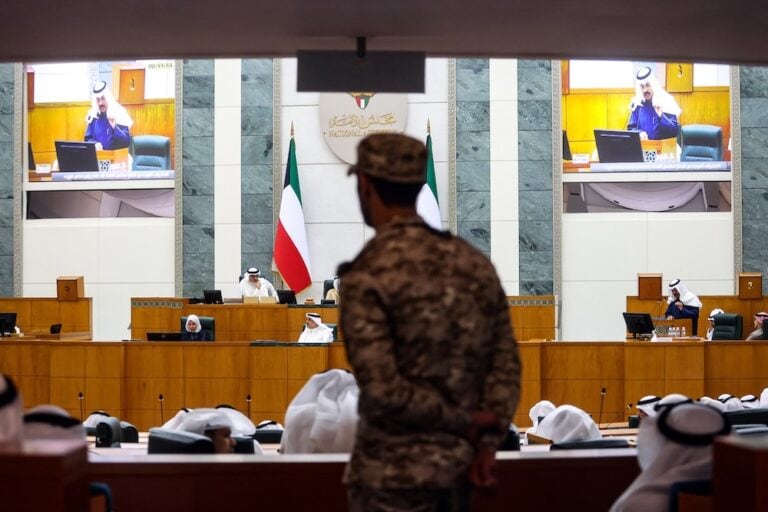(HRinfo/IFEX) – On 6 February 2008, the Arabic Network for Human Rights Information (HRinfo) stated that the new website censorship law the Kuwaiti government intends to present to the parliament is contradictory to the dominant trend in most democratic countries, where an increase of freedom of expression, especially on the internet, is recommended. An article […]
(HRinfo/IFEX) – On 6 February 2008, the Arabic Network for Human Rights Information (HRinfo) stated that the new website censorship law the Kuwaiti government intends to present to the parliament is contradictory to the dominant trend in most democratic countries, where an increase of freedom of expression, especially on the internet, is recommended.
An article published by the Kuwaiti newspaper “Al-Watan” refers to a trend in the ministry of information to impose more restrictions and censorship on websites and blogs. This article summarises the on-going controversy in Kuwait between two currents: one, defending freedom of the press and internet, while the other is seeking tighter censorship and restriction measures The latter has already been applied by imposing tough restrictions on freedom of publishing and creativity in 2007.
This proposed new legislation reflects a serious decline in freedom of expression in Kuwait manifested through the confiscation of many political and literary books, such as the novel “Chicago” by Alaa El-Aswany, the ban on certain animated movies and games, the closing of video and music shops, on the claim of defending morals and Islamic obligations.
Gamal Eid, the executive director of HRinfo said, “we think that this new law is representing a gathering point of interests between the Kuwaiti government and some extremist currents in Kuwait. Extremists have always called for imposing more stern censorship on freedom of expression, and on the internet and a few months ago, the internet activist Bashaar El-Saeigh was arrested because of the “redlines” (from the Kuwaiti government point of view). Today, there is an intention towards imposing more strict censorship in order to please the extremist currents and to punish those who dare to criticise the Kuwaiti government”.
It is worth mentioning that Kuwait was becoming a model of steady development and civilisation in the Gulf, and could be considered a constitutional state with an active parliament and effective political blocs. It is, however, witnessing a regression of democratic values as the civil authorities are about to shift these civil structures to a mere formality because of the mounting influence of those who are opposing freedom of expression and freedom of women. These freedom opponents describe themselves as “the Propagation of Virtue in Kuwait,” along the lines of what was done in the Kingdom of Saudi Arabia, where expressions such as “freedom of expression”, “women’s rights” or “fair trials” are not even in the vocabulary.


